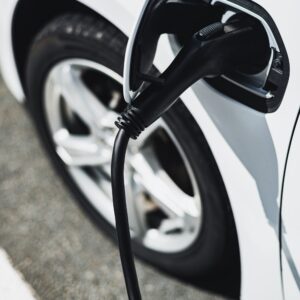The days of sitting back and waiting to see how Canadians embrace the electric vehicle (EV) movement are over. In 2022, the federal government announced it is mandating electric car sales as of 2026. This means condo corporations, boards, and property managers must act decisively if they want to choose a strategy to ensure their parking facilities are properly equipped at a cost that isn’t prohibitive.
But getting that ball rolling isn’t easy. It can be daunting and confusing, especially given the way EVs have been slow to catch on, with costly upfront considerations creating buyer hesitancy. While developers of new single-family homes and multi-residential buildings can include zero-emissions vehicle (ZEV) infrastructure in their building plans, existing properties aren’t so lucky. Most high-rise residences today are underequipped to meet the current level of EV need, let alone what is projected. All around the world, governments are targeting for a complete switch to EVs by 2030 or shortly thereafter.
Here in Canada, car manufacturers will be subject to penalties for not producing and selling the right quota of electric cars as it progresses towards its target of reaching 100% ZEV sales by 2035. Annually, that translates to approximately 395,000 new ZEV sales in 2026, 1.2 million new ZEV sales in 2030, and 2.0 million new ZEV sales in 2035.
“As we are seeing in European markets and in some U.S. states, the mandating of electric cars will require a huge investment in charging infrastructure to meet the influx of need,” said John Nassar, Founder at Hwisel EV, a company that specializes in supplying, installing, and managing EV charging Infrastructure. “Right now in Canada, many condo boards are struggling to figure out the best way to implement this technology in a manner that will benefit current and future residents and take pressure off the corporation.”
 With so few EV drivers to accommodate in the past, charging stations in condominiums were typically dealt with on a case-by-case basis. Each owner would approach the board and work privately toward getting their EV charger installed. That said, the power needed to supply the parking space generally came from the corporation’s electrical infrastructure, which in most cases had a limited capacity for additional electrical loads. Sometimes this meant non-EV drivers were subsidizing the cost for the EV-users, or future EV drivers were excluded given that early adopters used up all the available electrical capacity in the building.
With so few EV drivers to accommodate in the past, charging stations in condominiums were typically dealt with on a case-by-case basis. Each owner would approach the board and work privately toward getting their EV charger installed. That said, the power needed to supply the parking space generally came from the corporation’s electrical infrastructure, which in most cases had a limited capacity for additional electrical loads. Sometimes this meant non-EV drivers were subsidizing the cost for the EV-users, or future EV drivers were excluded given that early adopters used up all the available electrical capacity in the building.
Although this approach is still available and suited to smaller buildings with limited to no parking, there is a better option for condominiums looking for an alternative, long-term solution, with less capital requirements and administration. According to Nassar, the approach is similar to how Bell, Rogers, and Telus provide their Internet, cable, and phone services directly to the unit-owner.
“Going this route, the condo corporation does not own or pay for the infrastructure or the electricity; rather it is provided directly to the owner as a service, transferring all operational costs and obligations onto the supplier, and providing key savings,” he said. “Additionally, since all condos need a service provider to bill and collect electricity charges from EV users (even if the condo purchases the infrastructure), extending the service to also include the infrastructure makes sense. For a small additional monthly fee, they get a complete solution that is equitable, does not require an investment, and is turnkey.”
 Level 2 or Level 3?
Level 2 or Level 3?
In addition to strategy and service considerations, another important distinction is the level of charging equipment needed for the property or unit-owner. While Level 2 chargers are considered to be fast, effective and affordable by current standards, Level 3 is the fastest charging system available, but requires significantly more power. As such, there are limitations to where this charger can be installed.
“At Hwisel, we provide worry-free Level 2 and Level 3 stations for direct purchase, or through affordable monthly plans,” said Nassar. “Additionally, our unique monitoring service allows us to fix EV charging issues remotely and deliver software upgrades, helping our customers save time, energy, and money.”
Find out which EV plan is right for you at www.hwisel.com





